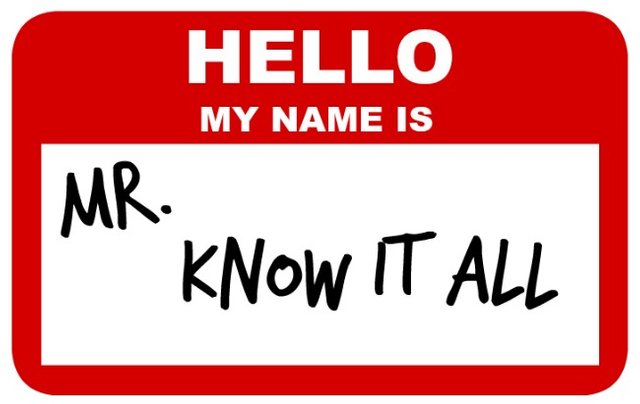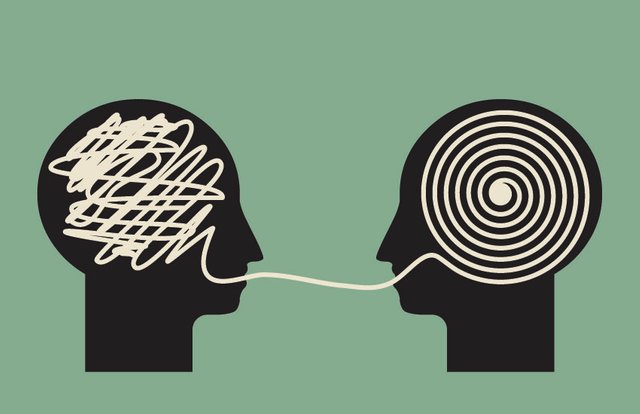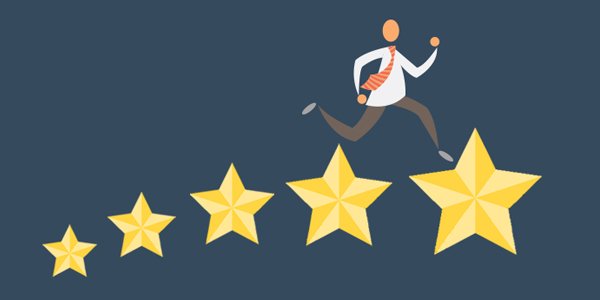How to know yourself better
What do you think is the hardest thing in the world?
Everyone has their own answers.
Some people may say that achieving financial freedom is the hardest; Some people may say that it is the hardest to live their lives in their own way, and others may say that finding the most love of their lives is the hardest.
Socrates answer for that question is that "knowing yourself" is the hardest.
For the rest of our lives, we are nothing more than a process of constantly knowing ourselves and discovering ourselves.

source
Preferences
Everyone has their own preferences, and when our brains form a certain tendency, it will automatically search for evidence that can prove it.
For example, if you hate a person, what you think of him is all about shortcoming, you will automatically block out the goods on him.
Even psychologists with knowledge of systemic psychology have failed to escape the effects of preferences.
There was once a very famous psychological experiment, which studied whether people would obey authority under the command of authority, and finally came to the conclusion that they would obey. Later, some psychologists repeated the experiment, but came to the conclusion that they would not obey.
Why would the same experiment come to a very different conclusion?
It turns out that psychologists are unconsciously affected by preferences when choosing to be tested.
Psychologists who tend to agree that they will be influenced by authority will choose subjects who appear to be more obedient, while psychologists who tend not to agree that they will be influenced by authority will choose subjects that appear to be a bit of a ruffian and undisciplined, leading to different results in the same experiment. Therefore, in psychological experiments, double-blind testing and the randomness of the subjects are particularly important.
From this we can also see that even psychologists will unconsciously be affected by the preferences. No matter how smart you are, it is impossible to completely avoid preferences.
We can only minimize the impact of preferences on us, and when we encounter problems, we must consciously remind ourselves whether we have been affected by them, so that what we choose will be closer to reality.

source
Why do you like to pretend you know everything
I don't know if you have had such an experience, when discussing a problem, you clearly know that the other party doesn’t understand anything, but still act like knowing the topic well, to show off their own knowledge.
Why not just admit that you don't understand?
This has to do with our evaluation of ourselves, and we evaluate ourselves to a large extent by relying on feedback from the outside world.
For example, if someone says you are kind and warm-hearted, you are more likely to do something good to maintain your reputation as "kind and warm-hearted."
And pretend to know everything is to maintain the image in other people's eyes, but this "pretend" has a problem, is that the more you pretend, the greater the effort required. Once you are busted, your early accumulation of good reputation will be destroyed.
This is like the elasticity of a spring in physics, the harder you pull the spring, the greater the reaction, the greater the damage to oneself at one end.
So the "pretend" thing is really not something that an average person able to do.
Rather than thinking hard about how to please others, it is better to admit that you do not understand.
After all, knowledge is endless, and people's energy is limited. The knowledge that anyone has is placed in the ocean of human knowledge as a whole is nothing but the ocean. Socrates also said, "The only thing I know is my own ignorance."

source
Do you really understand the truth?
Many people like such a sentence "I understand the truth, but I just can’t do it". They thought they are lack of action, but in fact, it is still cognitive problems.
If one thing can bring you a lasting return, will you not do it?
Either you don’t understand the truth, or you feel that it won’t bring you the return you want, or the result is uncontrollable, afraid of wasting your time and energy.
If Google signed an agreement with you, asking you to wake up 6 o'clock in the morning every day, keep writing 500 words a day, think deeply for an hour, exercise for half an hour, adhere to 10 years. After 10 years, they will give you a billion, can you hold on? I'm sure most people will stick with it. And without this agreement, 99.99% of people would give up because they couldn't see that far.
But it was that 0.01% of people were able to see the benefits of doing so, so they insisted on doing it, and they were more likely to make 100 million.
One thing whether or not will trigger your actions, depends on your perception of it, depends on the priority you get in your mind after a comprehensive assessment of its risks, the effort that needs to be made, and the benefits that may be achieved after the effort.
Priority is a very subjective concept, some people might take the initiative to try to do at 60 points, and some people may not willing to start unless it is 80 points.
For those with higher thresholds, there are several ways to improve your ability to act:

source
Start with the smallest tasks
Don't set ambitious goals for yourself at start. Such as you want to start writing, don't think about how to get the Nobel Prize for Literature at first.
But think about how to practice your own writing, improve your ability to control the text.
You can try to practice writing 300 words a day. Do not underestimate this 300 words a day, if you can be persistence, you will have at least 2000 words a week.
As your writing improves, the more significant the effect of early accumulation will be.
Quantitative gains
A lot of things that are clearly good for us, but we just can't lift the motivation to do it, and one reason is that it takes too long to reach the reward period.
You can quickly see your level constantly improving and your equipment getting better and better when you play the game. But when you put it on study, it's not that fast.
You just started writing a post today, can you make a lot of money tomorrow? Do you do a few push-ups today and you can have a good figure tomorrow? Of course not!
It is because the reward period is too long, some people cannot wait, so simply give up.
We can quantify the benefits of doing things every time so that we can urge ourselves to keep improving.
For example, a person who has insisted on writing for 10 years will be able to make a lot of 10 million in 10 years.
Suppose you keep writing every day and update 2-3 of quality posts a week.
One month is about 10, one year is around 120, and 10 years is about 1200.
You can use these 1200 articles to hone out of the writing ability, the ability to earn 1 million, the equivalent of 10000 per article. And putting this $10000 of earnings in an account, 10 years later take out in a one-time.
In this way, quantitative calculations allow you to see the benefits and thus be more motivated to do so.
Of course, the amount of money here is just a metaphor. Exactly how much has yet to be examined, but you can refer to such a thinking mode, decompose, quantify the benefits, enhance your mobility.

source
Reward yourself in a timely manner
There is an area of our brain that is a reward nerve center, and when it is activated, we are more motivated to do something. Therefore, after the achieving the stage results you want, you can properly reward yourself, so that you will see the results of your efforts are rewarding.
Of course, the reward is not to let you indulge, and you need to pay attention to the weight of the rewards.
Re-understand the opportunity
Many people do not go well with the company they are working for, not appreciated by the leadership, feel that their talent were wasted, has not had the opportunity to show themselves.
This is actually not a correct understanding of the concept of opportunity.
What is an opportunity? Opportunity refers to the possibility that we can move towards a more favorable period of time.
Every skill we learn is actually to grow an extra tentacle for ourselves, which increases our probability of being exposed to more resources in this direction. Some people grow fast, some people grow slower, it doesn't matter, the key is that you have to have tentacles.
Some people might say what's the use of having so many useless tentacles?
It's not useless, it's the occasion you haven't found to be able to use it. Some people like to look at the problem with static thinking, if they can’t see the return, they will choose not to do.
But things are developing dynamically, and the absence of return at the moment does not mean that absence in the future.
If in the future others get the same opportunity, and you don’t, you can only envy, don’t be jealous, this is your choice, you have to learn to pay for your choice.

source
Correct understanding of social relationship
Good social relationship can sometimes make us do more with less, especially in a human society like ours, where good relationship means better resources.
So how do you give yourself a better relationship?
Let's take a look at the classification of the relationship.
As with income, relationship is also divided into "asse relationship" and "labor relationship."
Asset relationship refers to people who have resources, such as the rich, powerful people. Even if they do nothing, there will be a lot of people to find them, because they are "profitable" for others.
Labor relationship mostly refer to those who do not have too many resources, can only help others through labor. The most typical is the “Mr nice guy”, they never reject others, their relationship is based on the needs of others, which is very unstable. Once others have no need, then they lose the "value". That sounds cruel, doesn't it?
But that's the way the world is, and if you want to get good connections, you have to master the resources.
How about a lot of people who might say that most of us don't have that many resources? When you have not yet acquired the asset, please accumulate in silence first, increase your probability of opening the opportunity.
Wait until the opportunity comes, seize the opportunity, slowly converge to the asset relationship.
Knowing oneself is the process of life, I hope that in the process, you can get rid of the fog, see yourself, become the person you want to be.

